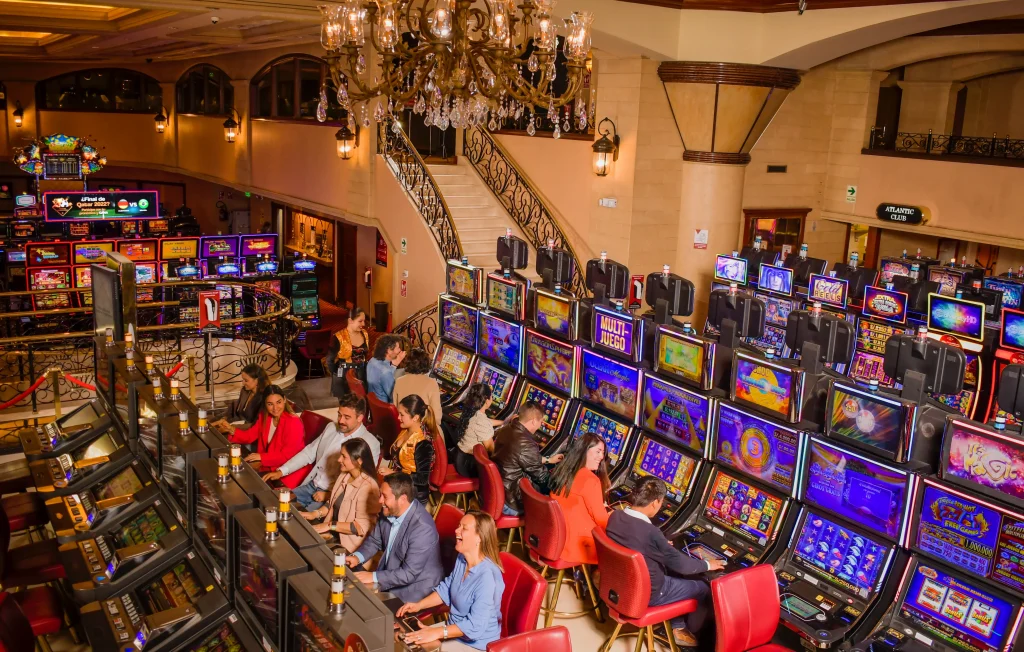
Casino games have long been a engaging form of entertainment, drawing countless of players from varied cultures around the globe. From the glitzy casinos of Vegas to the bustling gambling halls of Macau, these games serve as a common thread that brings together people across a variety of backgrounds. The allure of luck, skill, and risk entices not only those looking to gamble for profit but also those looking for a feeling of belonging.
The cultural impact of casino games extends significantly past the gaming floor. They often embody the values and principles of the societies in which they flourish. Games such as seven-card stud, 21, and the wheel game have embedded themselves into the tapestry of popular culture, influencing various aspects from movies to style. As we explore this intriguing intersection of gambling and society, we can gain insights into how these games shape and are influenced by the environment surrounding us.
Historical Evolution of Casino Activities
The origins of gambling games can be tracked back to old cultures, where betting in various forms was extensively performed. In the East, around two thousand three hundred years before Christ, a type of gambling known as Keno was common, while in historic the Roman Empire, soldiers would often wager on the outcomes of their games. nha cai f168 The idea of using luck for amusement and income progressed over the centuries, leading to the creation of more organized activities. By the late Middle Ages, gambling houses started to surface in Europe, notably in Italy, which brought forth early versions of popular games still played today.
As gambling increased popularity in European regions, the 17th and 18th centuries saw the appearance of casinos as specialized venues for gaming. The first official gambling house, the Ridotto, was founded in Venice in the year 1638, providing games like Baccarat games and the game Faro. This period marked a crucial shifting point, as gaming venues started to draw not just the high society but also the burgeoning middle class. The complexity of activities grew, leading to the development of new rules and modifications that improved the play experience.
In the 19th century, the industrial age and shifts in social norms additionally altered the terrain of gambling games. The launch of roulette and new one-armed bandits drew a broader audience, and gambling establishments became seen as acceptable fun. This time witnessed the international spread of casino activities, as gambling houses extended from Europe to the Western Hemisphere, culminating in the development of the legendary Las Vegas Strip in the 20th century. The development of gaming activities has persisted into the modern era, incorporating technology and online sites, allowing them available to a global population.
## Cultural Significance across Different Societies
Gambling games have significant social significance across a multitude of communities across the planet. In Las Vegas, the very essence of the urban landscape is woven around casinos, where gambling is not just a recreational activity but a fundamental aspect of entertainment and social interaction. The dazzling lights and dynamic atmosphere attract a vast audience, showcasing how games of chance can shape local economies and local cultures. This surrounding transforms the notion of leisure into an immersive encounter that shapes apparel, music, and even cinema.
On the other hand, some communities approach wagering with more caution, seeing it through the lens of ethical considerations and heritage. For example, in many Oriental communities, games like Mahjongg and Pai Gow Gambling are full of history and carry significant social implications. These games are often played during gatherings and festivities, fostering social ties and solidifying kinship ties. The act of engaging in these games goes past mere entertainment, reflecting values such as honoring elders and the value of collective enjoyment.
At the same time, in continental countries such as Monaco and the Italian Peninsula, games of chance serve as symbols of wealth and sophistication. The elegant atmosphere of these venues attracts both tourists and residents, upholding a sense of prestige and elitism. The art of Texas Hold’em and the strategic features of games like banker’s game are esteemed, shaping interpersonal interactions and creating an allure that enthralls a heterogeneous audience. This emphasizes how gambling can simultaneously reflect and influence cultural perspectives towards hazard, benefit, and relationship building.
Financial Influence and Tourism
Casino games play a crucial role in the economic landscape of many areas, particularly those that rely heavily on tourism. The revenue produced from gambling establishments fuels local financial systems, creating jobs not only within the casinos but also but also in connected industries such as hotel management, dining, and recreation. This influx of tourists, drawn by the allure of games and the overall gaming environment, stimulates expenditure across multiple businesses, contributing to the economic vitality of the region.
The existence of casinos often leads to the development of infrastructure, including hotels, public transit, and leisure amenities. These developments are essential in improving the overall visitor satisfaction, making destinations more appealing to visitors. Additionally, many casinos contribute in local communities through support of events and philanthropic activities, further integrating themselves into the community structure of the region. Such investment not only supports economic growth but also cultivates a positive reputation of the gambling sector.
Furthermore, the global popularity of casino games drives competitive tourism, with regions vying to attract players from around the world. Iconic destinations like Las Vegas and Macau have become synonymous with casino culture, drawing millions annually. This advantage encourages creativity and diversification within the gambling sector, influencing trends in entertainment and hospitality that extend beyond their borders. The consequences of this tourism extend far, impacting local economies and cultural interactions on a worldwide scale.
